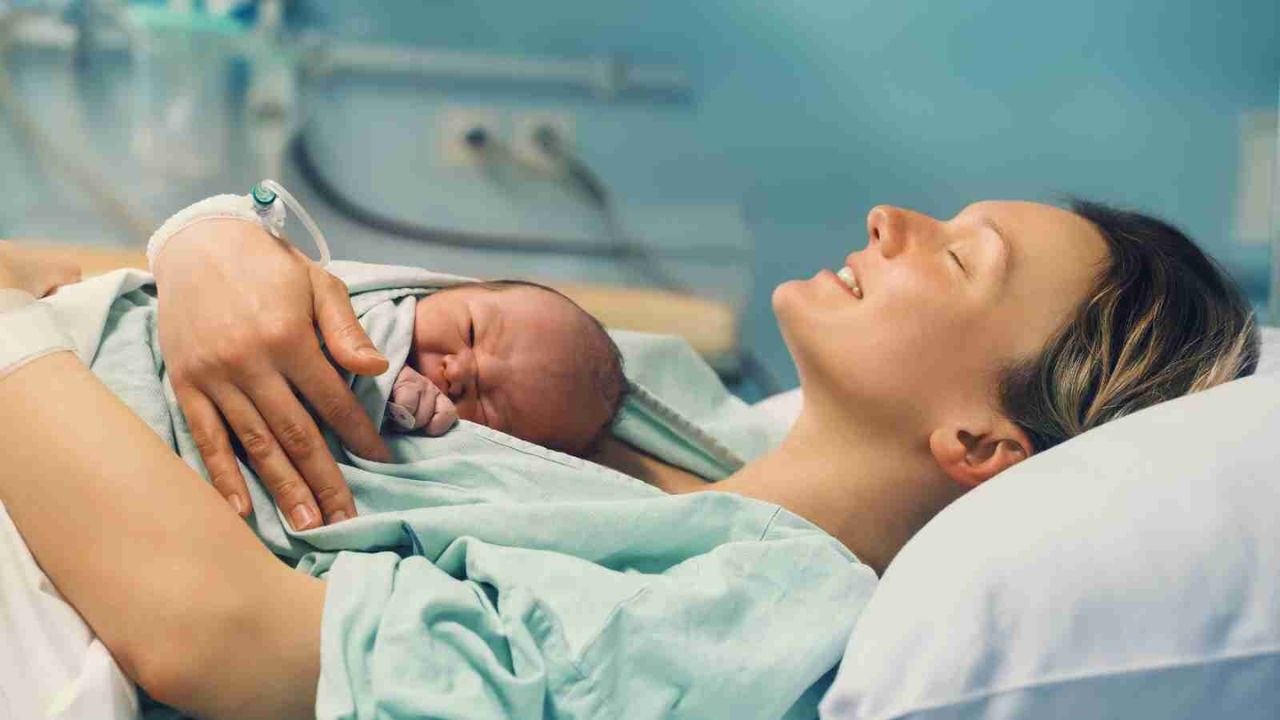After enduring the challenges of nine months of pregnancy, the moment a woman becomes a mother, the sight of her baby's face makes her forget all the pain. Childbirth leaves the mother exhausted, and her body requires time to fully recover. Therefore, it's crucial to provide excellent postpartum care and pay special attention to her diet. Furthermore, postpartum mothers may experience physical and mental health issues that can also affect the baby. Let's explore how to care for a mother after delivery in this article.
Postpartum Precautions:
Rest for six weeks after delivery. Enlist the help of family members for household chores and avoid any strenuous housework.
Even after six weeks, avoid strenuous housework and consult your doctor before resuming any household chores.
Pay close attention to your diet; good nutrition will aid in a faster recovery.
Get at least eight hours of sleep daily after pregnancy.
Ensure regular breastfeeding for the baby, which helps contract the uterus and aids in weight loss.
Avoid stress of any kind after pregnancy.
Do not take any medication without consulting a doctor.
Start walking slowly, as this will improve digestion and make it easier for you to use the bathroom.
Pay special attention to vaginal hygiene, as the risk of infection increases due to postpartum bleeding.
Postpartum Issues:
Postpartum fatigue is a common experience for every woman, and during this time, a woman's body becomes quite weak. Injuries can also occur, leading to several problems for the mother after pregnancy.
Postpartum mental stress or depression
Vaginal tearing during delivery
Postpartum skin problems such as acne, oily skin, etc.
Postpartum uterine or vaginal infection
Postpartum hemorrhage or excessive bleeding after delivery
Delayed menstruation after delivery
Postpartum hair loss
Heartburn in the chest, throat, or stomach after pregnancy
Vaginal dryness after pregnancy
Burning sensation in the vagina while urinating after delivery
Swelling in the legs and abdomen after delivery
Stretch marks on the abdomen after pregnancy
Irregular menstruation or amenorrhea after delivery
Weight gain after pregnancy
Breast problems after pregnancy
Constipation and hemorrhoids after pregnancy

What should postpartum mothers eat?
After delivery, the mother's body needs plenty of nutrients to recover and breastfeed the baby. Therefore, mothers should eat a balanced and nutritious diet. To relieve constipation after pregnancy, eat fiber-rich foods such as oatmeal, green vegetables, fruits, etc. Adequate intake of vitamins and minerals keeps the mother healthy, so she can consume fruits and dried fruits. Postpartum mothers need a large amount of protein to recover, so they can eat lentils, milk, yogurt, dried fruits, eggs, and meat/fish. In addition, mothers should consume iron and folic acid-rich foods such as spinach, fenugreek, and figs to increase blood volume. Postpartum mothers should also drink plenty of fluids, such as eight to ten glasses of water, coconut water, fennel water, and fruit juices.
What should postpartum mothers avoid?
Avoid spicy and fried foods.
Reduce coffee and chocolate consumption.
Avoid gas-producing foods such as cauliflower.
Avoid acidic foods, as they can cause heartburn and indigestion in the baby.
Avoid cold drinks and soda.
Avoid alcohol or smoking.
Avoid eating outside food.
How should postpartum mothers sleep?
After delivery, mothers become so busy caring for their newborn that they don't get enough sleep, which can be harmful to their health. Newborns breastfeed several times at night and don't sleep for more than 4-5 hours continuously, so mothers should adjust their sleep schedule accordingly. Try to sleep whenever you get the chance. Even if you don't fall asleep, resting with your eyes closed will give your body some relief, and you will feel better. Keep the baby close so you can feed them without getting out of bed when they're hungry. If you can't sleep at night due to lack of sleep during the day, try to sleep for a while after breastfeeding the baby and after they have fallen asleep.
Avoid watching TV late at night, put away your phone and other gadgets half an hour before bedtime, and rest with your eyes closed.
Some women have trouble sleeping at night after pregnancy. In such cases, listening to your favorite soothing music can help you fall asleep.
Stop drinking coffee, and if you can't, avoid drinking more than one cup. The caffeine in coffee can reduce your sleep.













